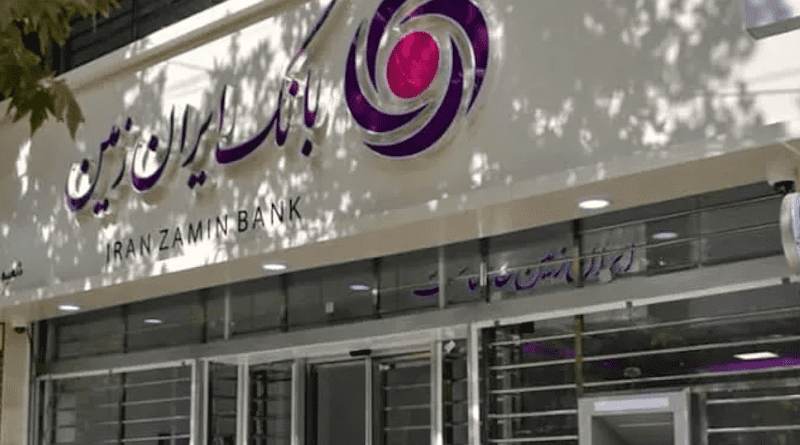Iran: Silence About Disclosure Of Bank Debtors’ List – OpEd
By Hossein Beizayi
Banks play an extremely crucial role in any country’s relatively healthy economic system. Monetary intermediation, creating income and investment opportunities, providing extended loans, and aggregating deposits are among the banks’ major functions. Banks turn their clients’ relatively short-term deposits into long-term loans by extending credits. By aggregating deposits, they accumulate depositors’ relatively small savings into huge loans, capable of creating economic capacities. In short, banks could significantly improve economic growth and facilitate economic and production progress. In most democratic countries, the banks are held accountable for their obligations towards their clients, and a very strong system of transparency is in place. To bring peace and stability to the minds of depositors and investors, the banks are insured by reputable insurance companies and the government.
In Iran, however, banks have transformed themselves into the economy’s super challenge under the rule of mullahs and places for the regime’s thieving, corruption, and plundering. Financial statements of Iran’s major banks show that they are insolvent, with embezzlement cases in banks being even more serious than the ones related to credit institutions. The corrupt banks often offer huge interests in savings to attract deposits. The accumulated money deposited by ordinary citizens is turned into huge loans and given to regime-linked figures and institutions. These astronomical loans leave the country and never come back in most cases.
Where are the banks’ unreturned loans?
The term ‘super debtor’ is a very familiar term among the regime’s media. This term refers to those who have been granted colossal loans and have not returned them. These individuals or institutions are affiliated with the regime’s authorities, and it’s difficult to find out the names of such super debtors. A name or two of these super-debtors surface once in a while because of the clashes between the regime’s factions.
The trend of corruption continues in Raisi’s government.
In Ebrahim Raisi’s government budget for the Persian year 1401, the Central Bank is obliged to publish the names of the recipients of large-scale bank loans. In theory, the publication of the list of bank debtors, on the one hand, leads to the transparency of the banking system and, on the other hand, shows the extent to which banks have moved in the direction of their set goals.
According to the Mehr correspondent, at the end of last year, the Ministry of Economy, with the approach to reforming the country’s banking practices and policies, issued five important orders, the most important of which was requiring state-owned banks to publish the names of bank super-debtors. In this regard, the Minister of Economy had written a letter to the Governor of the Central Bank requesting the Monetary and Credit Council to “require banks to publish the names of their super-debtors once every three months on the relevant bank’s website.” The list should include the amount of the loan or liability, the repayment rate, the debt balance, the interest rate, and the general type of guarantee. So far, none has been reported.
Managers and board members of some banks consider the publication of the names of bank criminals to be tantamount to creating economic insecurity and irreparable damage to these people, and at the same time, some of them are published under the pretext of government or dependence on some debtors on various institutions or bodies. They consider their names impossible and inadvisable.
According to Ata Bahrami, Economist and university professor, “Lawlessness is rampant in our money market, and the existing minimum rules are not being taken seriously and enforced,” he said.
“Although the bank is a financial intermediary between the depositor and the producer, it must provide the producer with the necessary facilities for economic prosperity. Still, due to illegality, banks lend to their members and spend the deposits on their corporations. Because they cannot repay the installments and money taken, on the other hand, they have to pay interest on people’s deposits; they are forced to take new money from the central bank, which has led to increased money printing, a monetary base, and inflation. It is expected Mr. Raisi fix this up quickly.”
Atta Bahrami added, “The government and the parliament should oblige the central bank not to give even a single rial (Iran’s currency) to private and state-owned banks in any way, in any case. Because the money and support that the central bank gives to the banks is a betrayal and a crime against the people, or to put it more bluntly, it is an obvious theft and pocketing the people in broad daylight!”
“As long as the way is open for banks to print money and create money, banks will not hesitate to spend on building some property and a project that does not bring the least economic income but inflates heavy inflation on you and me,” said the economist. “Therefore, Mr. Raisi’s government is expected to be a major obstacle to banks that, by setting up a money-printing machine, brokers and causes problems for the Iranian people.”
Raisi’s economic performance, so far
The daily rise in basic day-to-day needs of ordinary people, the growing rate of unemployment, skyrocketing rental rates, and real estate prices in the last few months since the beginning of Raisi’s government, are indicative of the fact that Raisi, just like all his predecessors, is neither willing nor capable of bringing any relief to the economic conditions of the people of Iran. Corruption, mismanagement, embezzlements, and bribery have not taken a break and, in fact, have been on the rise. One would ask how could a government whose foundation is based on corruption and lies, can bring an end to a crumbling economy. The long tunnel of corruption, injustice, and mismanagement could only come to an end with the removal of this regime. The end of this tunnel is becoming more visible.

